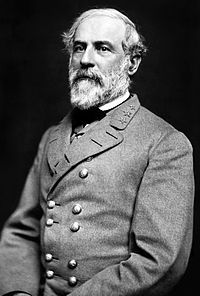Weaver

"To assume that his light is always sufficient is pride." Richard Weaver. I wish I could just stop with that quote. It's worth considering (and pointing at oneself) for a few minutes, but the rest of the Weaver quote, excerpted from his essay "Lee the Philosopher," is great, too:
Education is discipline and education is lifelong; indeed, we have [Robert E.] Lee's own statement that no man's education is completed until his death. If one has respect for the order of things, it is then possible for him to accept failure as instruction rather than as total repudiation. I do not see how Lee's serenity in the face of crisis and his self-possession in the days of distress can be explained save through this conviction, which is in essence the answer of Christianity to the paradoxes of existence. Richard Weaver, The Southern Essays.
Whew, there's a lot to unpack in that quote, but I'll just comment on the statement that failure is not "total repudiation."
Fans of Josemaria Escriva will see the parallel to Escriva's constant caution that we should never get too discouraged when we make a mistake, especially of the sinful variety. Intense discouragement in the face of our failures is merely a sign of pride: "How could I, the humble and virtuous one, have done such a thing!"
Rather than getting mad at ourselves or discouraged, we should nod to our fallen selves, resolve not to do it again, get up and walk. . . . and be ready for the next fall. It reminds me of the monk's response to the visitor who asked "What do you guys do here?" The monk replied, "We fall down and get up again, fall and get up."
